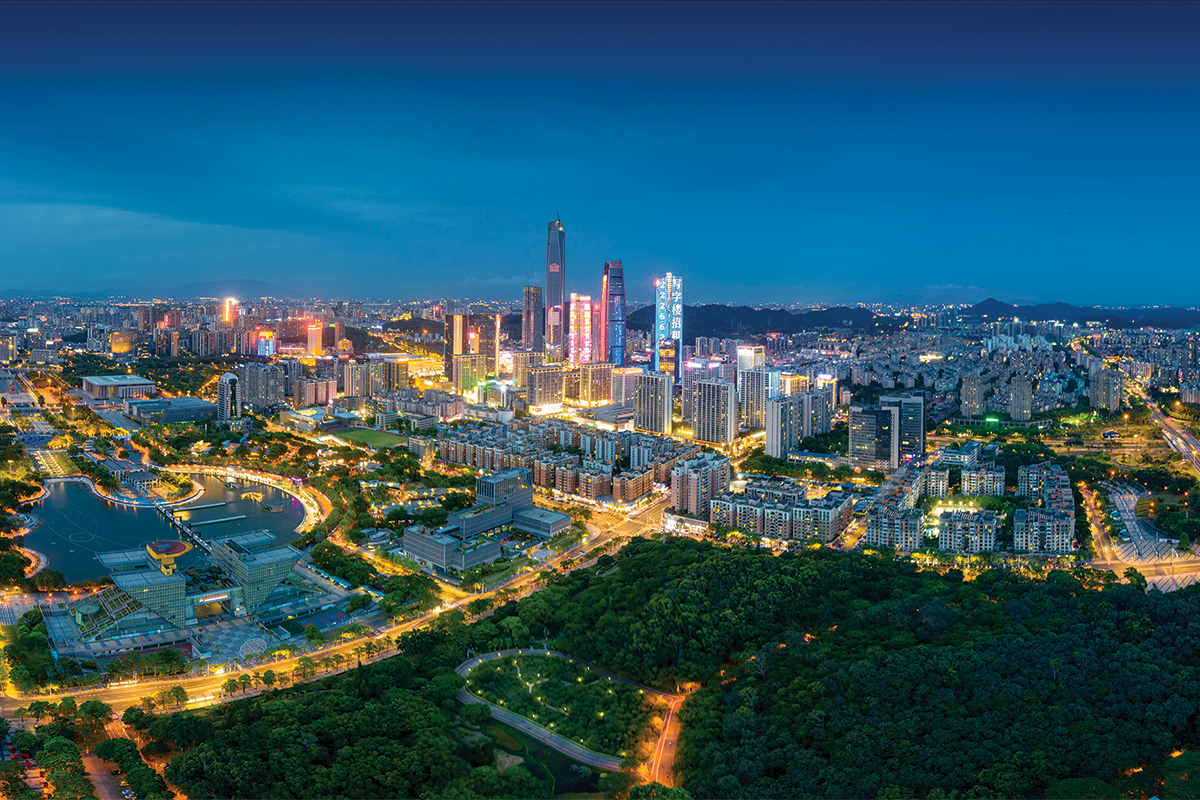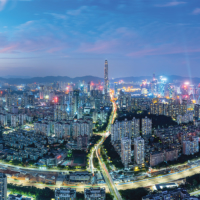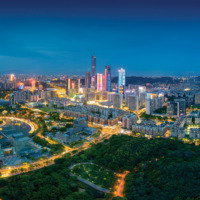This year, China and Japan celebrate the 50th anniversary of the normalization of bilateral ties with the signing of the China-Japan Joint Communique on Sept. 29, 1972.
This treaty signaled the end of postwar animosity between Beijing and Tokyo, as well as the start of a reinvigorated diplomatic relationship. As Hideo Tarumi, Japan’s ambassador to China, stressed in an interview with China Daily, “The China-Japan relationship is one of the key ties between China and major global players, and it has a crucial effect on the neighboring countries in the region.”
Half a century later, this milestone, while still riddled with challenges, is also marked by exciting developments — especially in the Guangdong-Hong Kong-Macao Greater Bay Area.
Deeper cooperation, dynamism
Composed of two special administrative regions and nine municipalities, the GBA is an emerging region in China with great potential for enhanced trade relations. The GBA framework agreement was signed into effect in July 2017, the main objective being to deepen cooperation among its component cities to create a dynamic, world-class bay area — a progressive hub for business, logistics and services as well as lifestyle.
A key aspect of this initiative is the inclusion of Hong Kong SAR in the GBA. Commemorating its 25th anniversary since the city’s handover to China, the government has expressed its commitment to continue developing Hong Kong as a first-rate logistics hub, technology and financial center, international maritime center, aviation hub and arbitration center, as well a seat of business and trade in the region. All of this is positive news for Japanese investors and companies headquartered in the city, as well as nationals living in the area.
Prime proponents of progress
Legacy companies like maritime magnates Wah Kwong and younger ventures such as leading digital entertainment and blockchain company Animoca Brands, are testaments to the vibrant business climate of Hong Kong in particular, and the GBA in general.
“From conversations I’ve had with Japanese companies, they are very interested in the Greater Bay Area,” Hing Chao, executive chairman of Wah Kwong, said, sharing that the company has been working with the government to streamline polices for smoother operations in the GBA’s shipping sector. Meanwhile, speaking for the financial and technology industries, Evan Auyang, president of Animoca Brands, noted, that “Hong Kong has very strong financial services and crypto talent. Hong Kong has a solid entrepreneurial spirit.”
With international firms like Stephenson Harwood at the forefront, Hong Kong’s legal sector is also seeing a boon in the GBA. And as partner Andrew Rigden Green underscored, they work “very closely” with Japanese clients, “particularly in the finance and maritime sectors, two key sectors for the GBA.”





